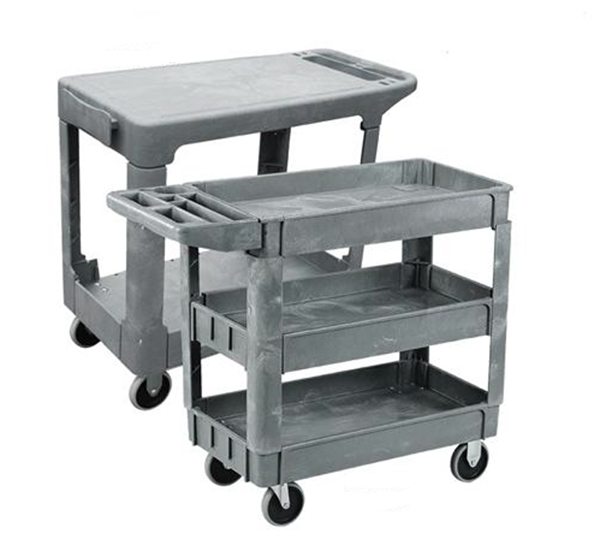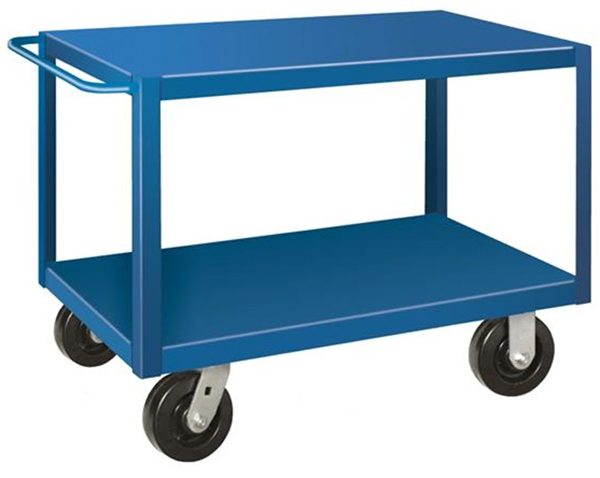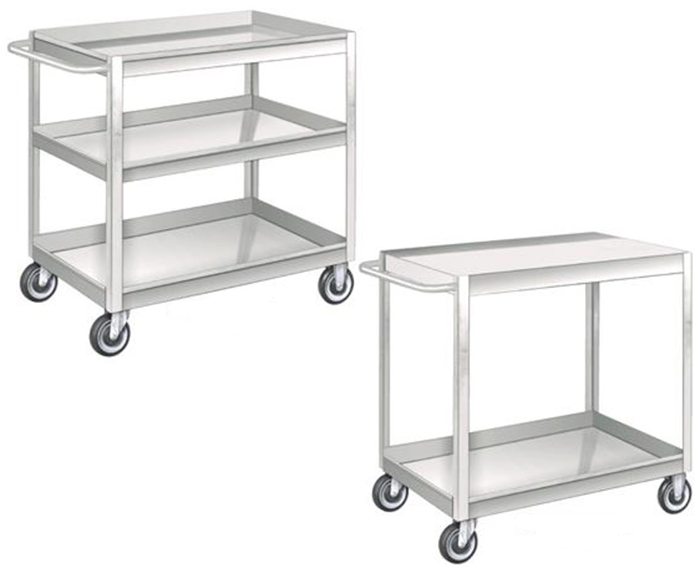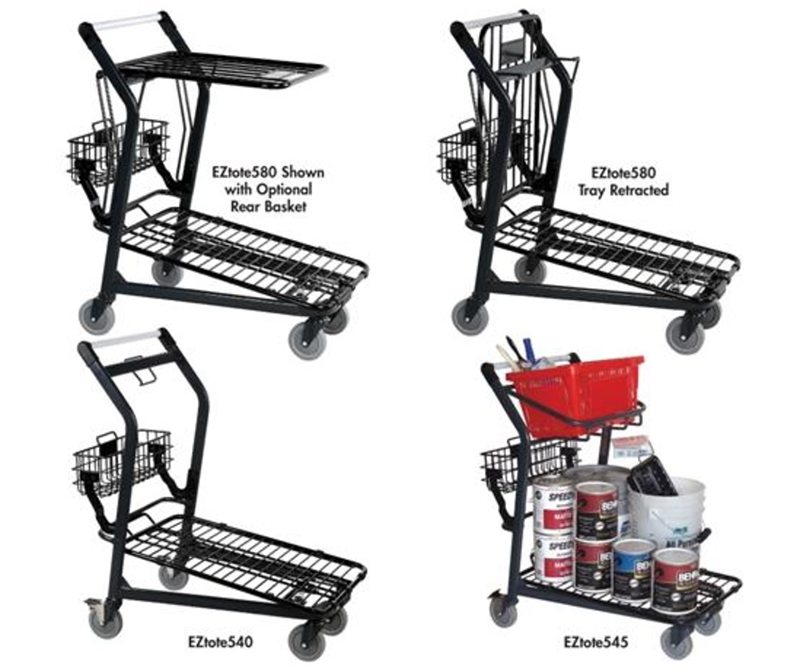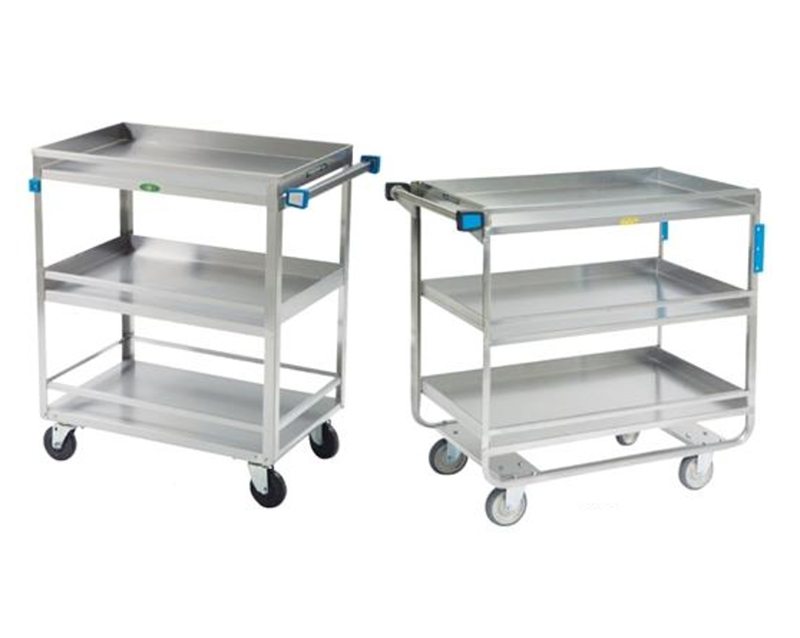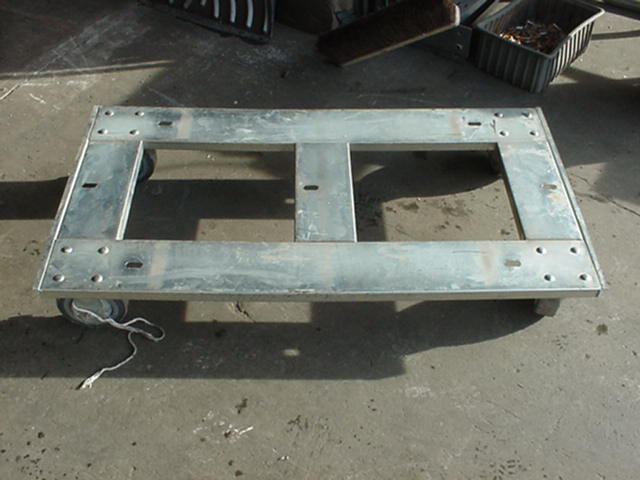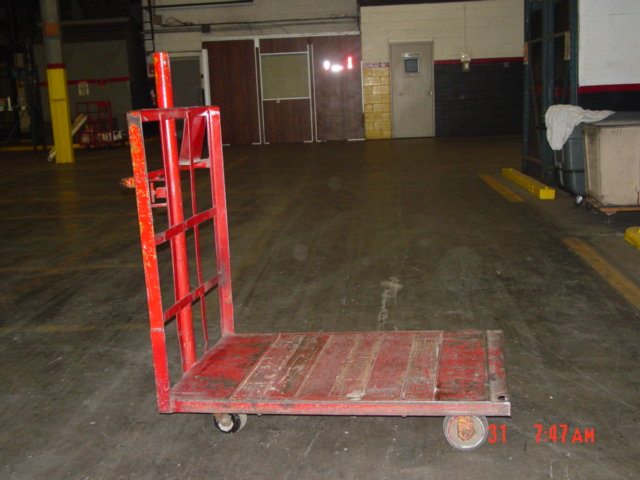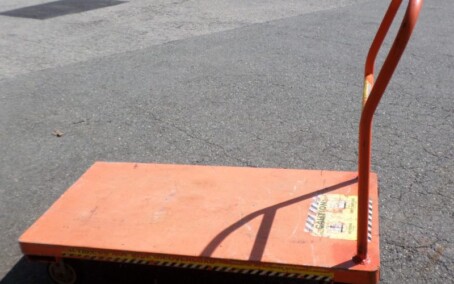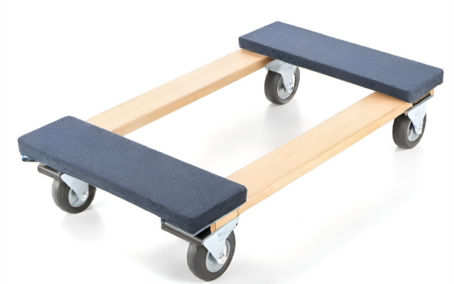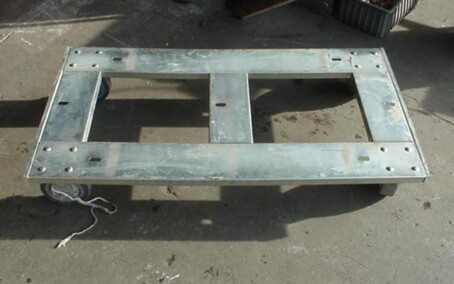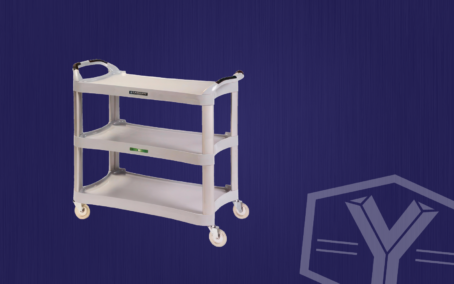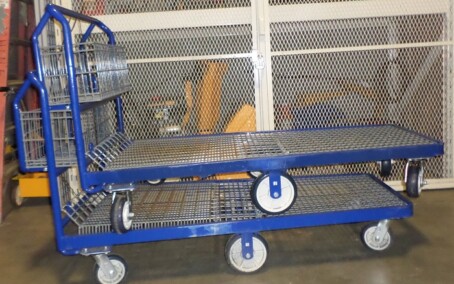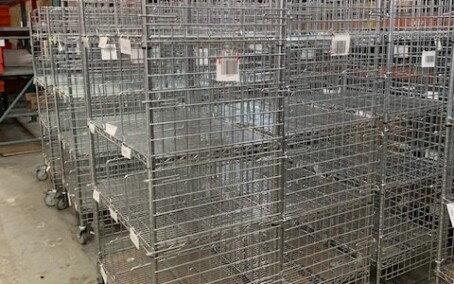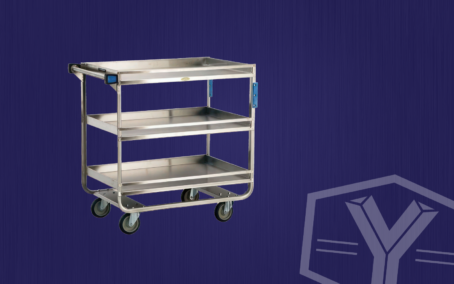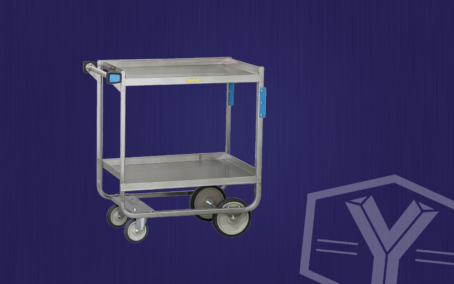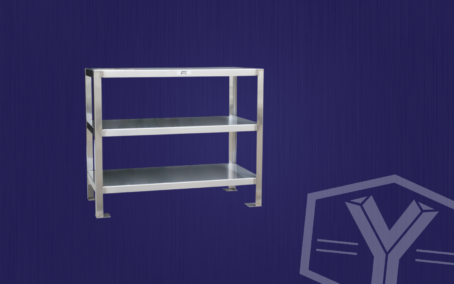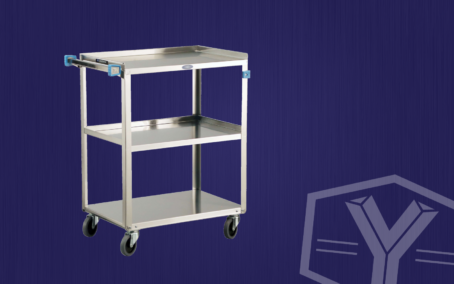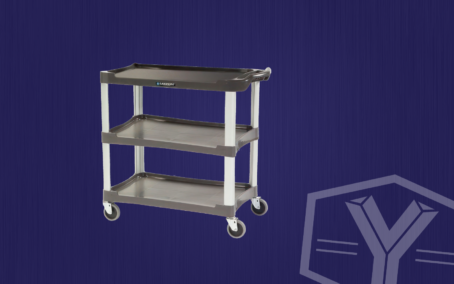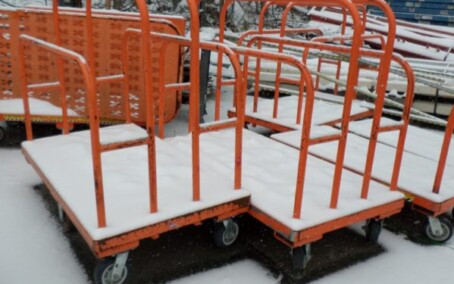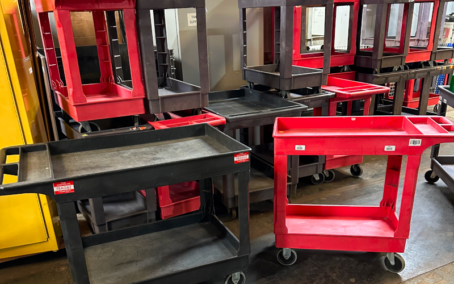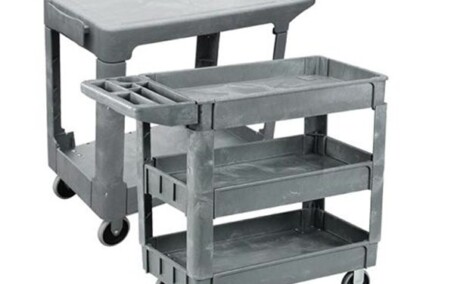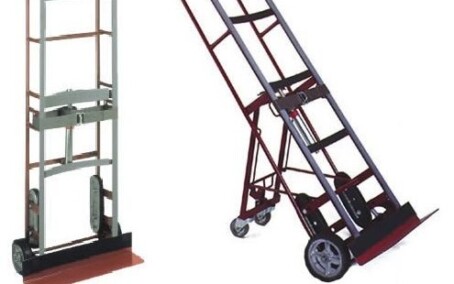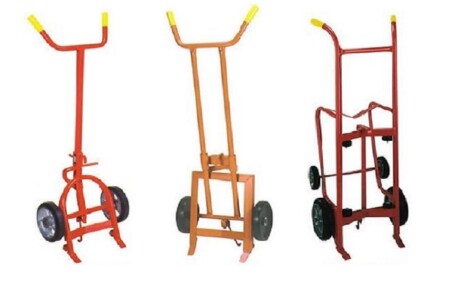We stock a wide selection of new and used warehouse carts. We also have direct access to more industrial carts and sizes that may not currently be available.
These carts are used for moving, transporting, and storing products to and from various locations within a warehouse or manufacturing facility.
We have steel and structural foam (Rubbermaid) carts, both of which have great durability. We have various sizes and types available.
Warehouse carts are an essential tool for any business that needs to move goods quickly and efficiently. Warehouse carts help to reduce labor costs, improve safety, and streamline operations. But when choosing the right warehouse cart, it’s important to consider your business’s specific needs. Here, we’ll discuss the different types of warehouse carts, the benefits they offer, and how to choose the right one for your needs.
Types of Warehouse Carts
There are several types of warehouse carts available on the market today. Each type has its own advantages and disadvantages, so it’s important to consider your needs before making a purchase. The most common types of warehouse carts include:
Platform Carts: Platform carts are the most basic type of warehouse cart. These carts are typically made of steel or aluminum and feature a flat surface for storing items. Platform carts are ideal for transporting large, bulky items, such as furniture, pallets, and boxes.
Industrial Carts: Industrial carts are designed for heavier loads. They’re typically made of heavier-gauge steel and feature several shelves or drawers for organizing items. Industrial carts are ideal for moving heavy items, such as large industrial equipment and tools.
Utility Carts: Utility carts are designed for lighter loads. These carts are usually made of plastic or aluminum and feature several shelves or drawers for organizing items. Utility carts are ideal for transporting items such as office supplies, medical equipment, and other small items.
Specialty Carts: Specialty carts are designed for specific applications. These carts are usually made of steel or aluminum and feature a variety of features, such as wheels, drawers, and shelves. Specialty carts are ideal for transporting items such as medical equipment, hazardous materials, and other specialized items.
Used warehouse carts offer a range of benefits, making them a compelling choice for businesses looking to optimize their material handling processes.
Cost Savings
- Affordability: Used warehouse carts are significantly more budget-friendly than their new counterparts, making them an attractive option for cost-conscious buyers.
- Immediate Availability: Unlike new equipment, used warehouse carts are readily available for purchase, saving both time and money.
Proven Durability
- Tested Performance: Used warehouse carts have already demonstrated their durability, proving their ability to withstand the rigors of material handling tasks.
- Reliable Workhorses: These carts are built to last, ensuring that your investment continues to pay off for years to come.
Used warehouse carts come in various types, each designed for specific material handling tasks and environments.
Platform Carts
- Basic Design: Platform carts feature a flat surface for carrying goods, making them versatile for various tasks.
- Weight Capacity: They come in different weight capacities, suitable for both light and heavy-duty applications.
Utility Carts
- Multi-Purpose: Utility carts are designed with shelves and compartments for carrying a variety of items, making them ideal for retail, healthcare, and industrial settings.
- Organization: They facilitate organization and prevent items from shifting during transport.
Order Picking Carts
- Specialized Design: Order picking carts are designed for efficient order fulfillment in warehouses and distribution centers.
- Ergonomic Features: They often include features like adjustable shelving and comfortable handles for improved ergonomics.
Wire Carts
- Lightweight Design: Wire carts are lightweight and often feature open shelving, making them suitable for moving smaller items or organizing goods in a warehouse.
- Visibility: The open design provides easy visibility of the cart’s contents.
When purchasing used warehouse carts, certain factors should be taken into account to ensure that you make a wise investment.
Condition
- Inspection: Thoroughly inspect the cart to ensure it is in good condition and free from structural issues or damage.
- Wheels and Casters: Check the wheels and casters for wear and tear, as they are critical for smooth mobility.
Weight Capacity
- Match to Needs: Choose a cart with a weight capacity that aligns with your specific material handling requirements.
Size and Dimensions
- Fit for Space: Consider the size and dimensions of the cart to ensure it fits comfortably in your workspace and can navigate through doorways or tight areas.
Proper maintenance is key to extending the lifespan and performance of used warehouse carts. Following these tips can help keep your equipment in excellent condition.
Regular Cleaning
- Dust and Debris: Clean the cart regularly to remove dust, debris, and any items that may have fallen onto the cart during use.
- Lubrication: Lubricate moving parts, such as wheels and casters, to ensure smooth mobility.
Inspection
- Periodic Checks: Conduct periodic inspections to identify any issues or signs of wear and tear.
- Immediate Repairs: Address any issues promptly to prevent further damage.
Storage
- Protection: Store the cart in a dry, sheltered area to protect it from moisture and weather-related damage.
Opting for used warehouse carts aligns with sustainability goals by reducing the demand for new manufacturing and minimizing environmental impact.
Used warehouse carts find versatile applications in various industries, from warehousing and logistics to retail, healthcare, and hospitality.
Used warehouse carts aren’t just about affordability; they represent a sustainable, reliable, and cost-effective solution for material handling needs. From their advantages and types to their role in optimizing material handling processes, these pre-owned workhorses are pivotal in streamlining warehouses across industries. By embracing used warehouse carts and investing in proper maintenance, businesses can achieve significant cost savings, reduce their environmental footprint, and ensure that their material handling needs are met with efficiency and reliability. It’s not just about cost savings; it’s about building a future of sustainable and efficient material handling for a more resource-conscious world.

